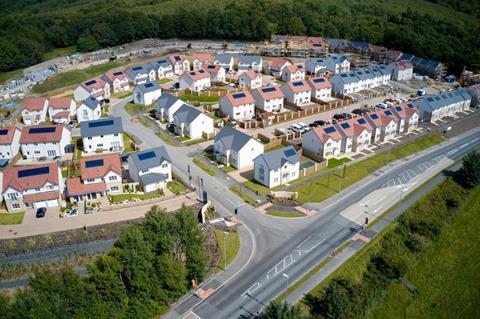Consents drop 12% year-on-year in 12 months to March 2024
The year to March 2024 saw the fewest new housing sites given permission than any 12-month period since data collection began in 2006.
Figures supplied by information provider Glenigan for the Home Builders Federation’s (HBF) latest Housing Pipeline Report showed a housing pipeline significantly smaller than in the aftermath of the global financial crisis.

According to the HBF, the figures “illustrate the stark challenge a new government faces to increase housing supply” and called for future ministers to work with the industry to fix the planning system and provide assistance to prospective first-time buyers.
A little more than 10,400 new sites were consented in the 12 months to March, 12% down on the same period the previous year.
This new low was 24% below the worst performance recorded during the aftermath of the global financial crisis, when 13,388 sites were conserted
The total number of units approved over the year to March 2024 was 236,644, which was the smallest for almost a decade and a 13% drop year on year.
Regionally, some areas saw an even greater drop in the number of units being approved. In the first quarter, London recorded its lowest figure since 2012, with 7,613 units approved – this was a 39% drop on the same period last year.
Stewart Baseley, executive chairman at the Home Builders Federation, said: “Amidst a deepening housing crisis and with house building levels already falling sharply, these numbers present a bleak picture for future housing supply.
“The report also puts into stark perspective the challenges a new government faces to meet its housing ambitions with a pipeline smaller even than during smaller even than during 2009 and the depths of recession.
“Reversing the trend will require immediate and drastic action to remove the significant barriers to housing delivery we face.”
Baseley said the next government would need to take “immediate action” to address the issue, including effective support for first time buyers.
Last week the HBF published a blueprint which called on the government to reinstate mandatory housing targets, introduce a 10-year plan for housing and review the green belt, alongside a range of other policies.
“It is also essential that politicians find a solution to the pointless blockade of 160,000 homes now entering its sixth year as a result of nutrient neutrality, towards which new homes make a negligible contribution,” he said.
”The next government must grasp the nettle and be bold and brave if it is going to help meet the country’s housing needs. Doing so will deliver huge social and economic benefits and the industry stands ready to deliver.”










No comments yet